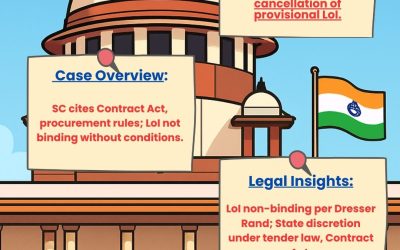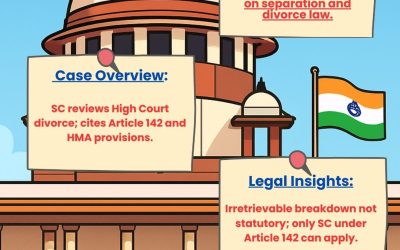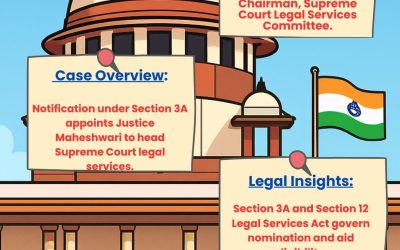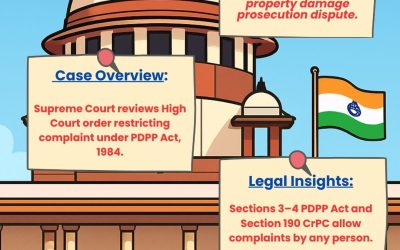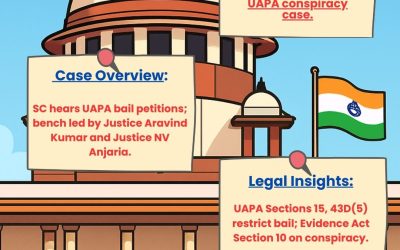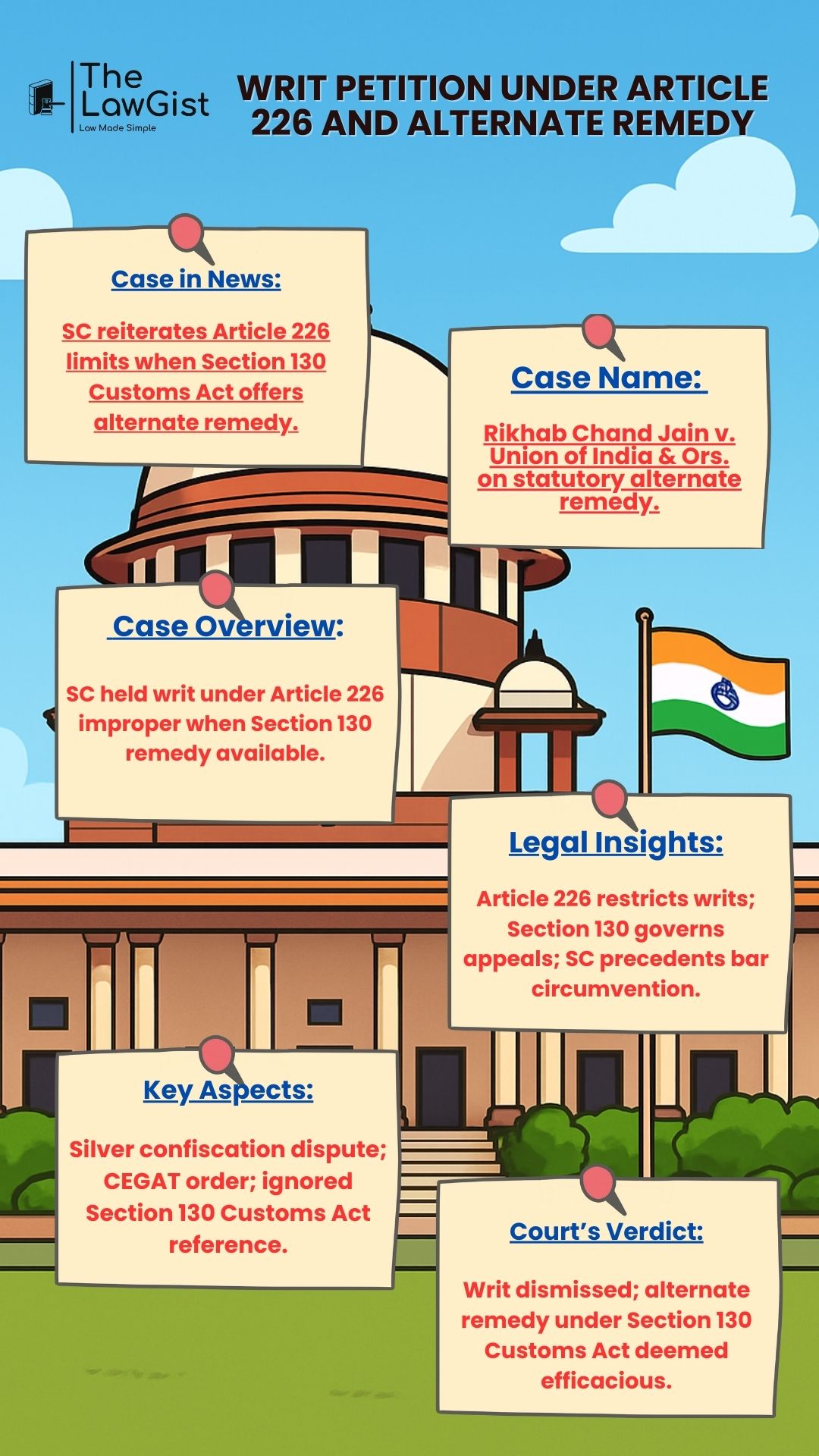
Supreme Court clarifies that writ petitions under Article 226 cannot bypass statutory alternate remedies like Section 130 of the Customs Act.
Case in News
Supreme Court reiterates limits on Writ Petition Under Article 226 And Alternate Remedy in statutory matters .
Discover powerful Latin Maxims and simplify complex legal terms in seconds.
Case Name
Rikhab Chand Jain v. Union of India & Ors.
Case Overview
A bench of Justice Dipankar Datta and Justice Aravind Kumar examined whether the Rajasthan High Court rightly dismissed a writ petition under Article 226 when a statutory alternate remedy existed . The case arose from the 1992 confiscation of silver, partially modified by CEGAT in 2000 . Instead of filing a statutory reference under Section 130 of the Customs Act, 1962 (then applicable through the CEGAT framework), the appellant approached the High Court via writ in 2003 leading to dismissal .
Step into the world of justice with Courtroom Chronicles
Key Aspects
- Silver confiscation upheld by CEGAT; penalty reduced .
- Statutory remedy available: reference to High Court under Section 130, Customs Act, 1962 .
- Appellant avoided the designated forum and directly invoked Article 226 .
- Issue: Can writ jurisdiction be exercised when an effective, speedy statutory remedy exists?
Legal Insights
- Article 226 of the Constitution of India: discretionary jurisdiction; not ordinarily exercised when alternative remedy exists .
- Section 130, Customs Act, 1962: provides statutory reference to High Court on substantial questions of law .
- Constitution Bench rulings :
- A.V. Venkateswaran v. Ramchand Sobhraj (AIR 1961 SC 1506) – writ barred when statutory remedy exists unless exceptional grounds (e.g., breach of natural justice) .
- Thansingh Nathmal v. A. Mazid (AIR 1964 SC 1419) – petitioner who disables themselves from availing statutory remedy cannot seek Article 226 relief .
- Principle reaffirmed : statutory forum must be given precedence when it offers speedy and efficacious adjudication .
Court’s Verdict
The Supreme Court upheld the Rajasthan High Court’s dismissal, holding that the appellant wrongly bypassed the statutory remedy under Section 130 . Since an equally efficacious alternate remedy existed, invoking Article 226 was a “misadventure.” The Court reiterated that writ jurisdiction is exceptional and cannot substitute the remedy expressly created by statute .
Read also-Constitution of India
Source-Supreme Court of India


